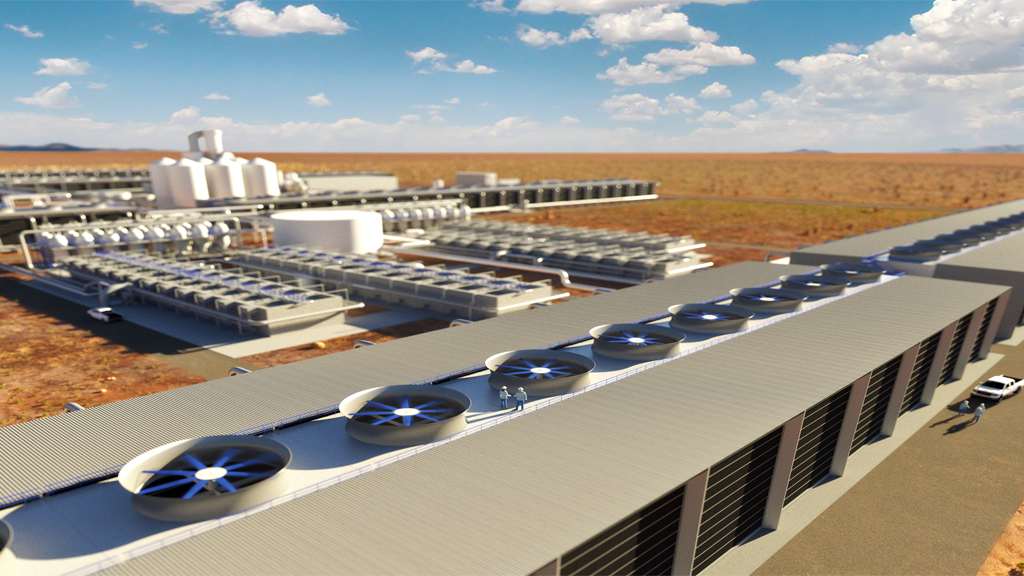Negative emissions via Direct Air Capture

Chalmers University of Technology, RISE institute, Nordic DAC Group and sector-leading Swedish companies join forces to accelerate negative emissions through Direct Air Capture technology.
The Swedish Energy Agency (Energimyndigheten) has recently announced the approval for the research project “Negative emissions with Direct Air Capture for Sweden”. This project will assess the Direct Air Capture (DAC) technology for Swedish conditions, international cooperation and business models supporting DAC. This project will be running between 2021 to 2025 with a budget of 9 million Swedish SEK. The Nordic DAC Group is working to develop a Nordic DAC- system that would utilize technology developed by the global frontrunner of Direct Air Capture from Canada, Carbon Engineering Ltd.
Strong need for negative emissions
The Intergovernmental Panel on Climate Change, IPCC has stated the necessity of carbon dioxide removal technologies. It is required in almost all of the scenarios for which the global temperature increase can be limited to well below 2°C. The DAC technology can contribute to this and has the potential advantage that it can capture carbon dioxide out of the air, anywhere, at any time. As such, DAC can contribute to solve the problem of emissions in “hard-to-abate” sectors – aviation, shipping, and agriculture as well as remove historical emissions that overloads the atmosphere. DAC can also provide ease of access to negative emissions for companies trying to reduce the carbon footprint from their own operations.
The goal of this project
The goal is to spread knowledge and develop readiness for large-scale implementation of Direct Air Capture. In this way, improvement and acceleration of the method development for negative emissions to reduce global emissions to net zero and beyond, can be achieved. The project will assess Direct Air Capture concerning the entire value chain, technology, economy, business models, and regulatory issues for international cooperation. So far in the Nordic countries, carbon capture from point sources, CCS and combined use of biomass with geological end storage, bio-CCS, has been the focused strategy to handle Nordic reductions.
These initiatives are all needed, but they have well-defined capacity limits and will with not to add up to the massive scale of negative emissions that will be needed on a global level at 2050. Sweden has the goal to become carbon neutral 2045. Norway’s target is net zero emissions by 2030, Finland in 2030 and carbon-negative shortly after, and Iceland by 2040. Denmark has a climate law to cut emissions 70% from 1990 to 2030, and become net zero by 2050.
These are all high ambitions and require negative emissions to off-set residual emissions in “hard-to-abate” sectors. This project will provide knowledge on the role that DAC might play to reach these ambitions.
PhD project combined with industrial interaction
The project lead by Chalmers University and the core research activities will be in the form of a PhD project. The PhD student will be supervised by Chalmers with support from RISE Research Institutes of Sweden. The Nordic DAC Group AB will coordinate an industrial reference group with Swedish sector- leading companies contributing with in kind involvement.
The contributing companies: Astra Zeneca, ABB, SAS, Arla Foods, Nordea, St1, Ving Travel, The New Division, Macon, TRB, Tricorona, Senior IT, Sustainable fashion Academy and Mentimeter, TCM (Norwegian carbon capture test centre), Global Compact UN Network of Sweden and the NMC Sustainable Business Network.
For more information please contact
Mikael Bergvall, CEO, Nordic DAC Group AB
+46 (0) 70 276 00 63
mikael.bergvall@nordicdacgroup.com
Filip Johnsson, Professor, Chalmers University of Technology
+46 (0) 70 276 00 63 +46 (0) 31 772 1449
filip.johnsson@chalmers.se